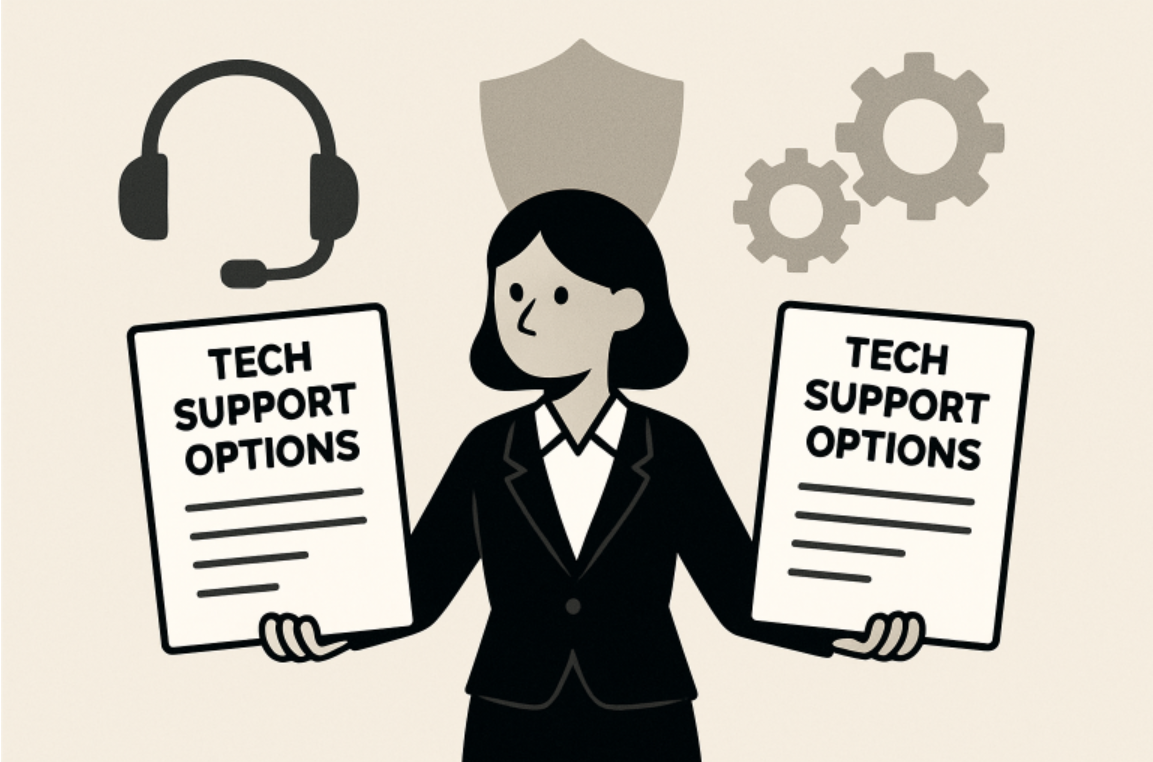In a digital-first economy, ensuring your business operates without technical interruptions is more vital than ever. Partnering with the right tech support provider can mean the difference between smooth operations and unexpected setbacks. As the need for reliable IT management continues to grow, navigating the landscape of tech support services Salt Lake City and beyond demands a strategic approach grounded in your company’s unique requirements. The multitude of tech support options can complicate the selection process for a provider that fits your goals and budget. Effective technology management not only minimizes downtime but also protects sensitive data from threats. Essential steps include defining your needs, comparing service agreements, assessing security protocols, and evaluating the value propositions of providers. This guide outlines how to identify your ideal tech support partner, emphasizing the importance of these factors for sustained productivity and security.
Assess Your Business Needs
The foundation for choosing a tech support provider is a deep understanding of your company’s specific technical requirements. Start by mapping your day-to-day operations and identifying pain points: Is your in-house team overloaded, or do you lack a dedicated IT department altogether? Assess whether you need comprehensive managed IT services, ad hoc support for complex issues, or a hybrid approach. Determining the scope and nature of support you need helps you target providers with capabilities tailored to your operational infrastructure, system complexity, and business goals.
Evaluate Service Level Agreements (SLAs)
Robust Service Level Agreements clearly outline a provider’s obligations and accountability. Reputable partners should commit to specific response and resolution timelines for different issue priorities. For instance, they might pledge a 30-minute response for critical system outages and a four-hour resolution window. Carefully compare provider SLAs with your business’s workflow demands, critical application uptime needs, and customer service standards to avoid costly downtime or miscommunications.
Consider Security Measures
With data breaches and cyberattacks on the rise, the importance of a provider’s cybersecurity practices cannot be overstated. Confirm that prospective partners implement multi-layered security, including advanced firewalls, end-to-end encryption, and scheduled data backups. If your business handles regulated data, ensure the provider is compliant with applicable standards such as HIPAA or GDPR. Evaluate their ability to support ongoing cybersecurity training and disaster recovery planning.
Review Support Options
Fast, flexible support is key to minimizing disruptions. Explore whether the provider offers 24/7 monitoring and assistance, the availability of remote troubleshooting, and the scope of on-site support for urgent hardware or network incidents. A layered support model ensures quick fixes for everyday issues as well as hands-on help for hardware failures or infrastructure changes. Prioritize tech partners with responsive multi-channel support—via phone, email, ticketing systems, and live chat.
Analyze Pricing Structures
Transparent pricing can protect your business from unexpected expenses and help you accurately forecast IT costs. Review whether providers use a flat-rate (all-inclusive) model, a per-user or per-device approach, or a usage-based billing structure. Ensure detailed quotes specify exactly what’s included—such as proactive monitoring, patch management, and after-hours support—versus what may incur extra charges. Budget-conscious businesses should seek transparent, itemized pricing that aligns with both current and anticipated needs.
Check Provider Credentials
Credentials and industry certifications are reliable indicators of expertise and adherence to compliance standards. Seek providers holding certifications from authorities like CompTIA (A+, Network+), Microsoft (MCP, MCSA), or Cisco (CCNA, CCNP). These affirm ongoing training and technical proficiency. Ask for case studies, white papers, or references that demonstrate a track record of success in your business sector or with similar infrastructure.
Assess Scalability
As your company evolves, your tech support must grow with you. A scalable provider can quickly expand or reduce services, add support for new technologies, and adapt to new workflows. Evaluate their ability to support business expansions, cloud migrations, or remote work transitions so you have IT coverage at every stage of growth.
Ensure Cultural Fit
Shared values, clear communication, and a customer-first mindset are essential for a productive and long-term partnership. Assess the provider’s approach to client onboarding, responsiveness to feedback, and ability to understand your business priorities. The best support providers will act as an extension of your organization, aligning their service delivery and team dynamics with your company culture.
Choosing a tech support partner is about more than technical know-how—it’s about collaboration, trust, and strategic alignment. Thoughtfully reviewing each of the factors above can help ensure IT stability, compliance, and resilience as your business grows.

